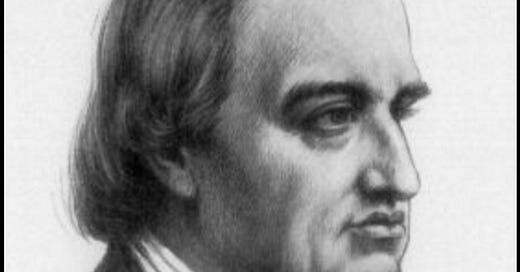How the Rothschilds Created Generational Wealth
How Billions of dollars have passed down hundreds of years.
Good morning investors,
I am not sure if you have heard of the Rothschilds, but in case you’ve been living under a rock, their families’ fortune rivals those of the Walton’s (founders of Walmart) and the Rockefellers ( founding Standard Oil in 1870).
This is impressive considering John D. Rockefeller was the first billionaire in the United States of America.
However, the most interesting part about the Rothschilds’ fortune is how Mayer Amschel Rothschild got the ball rolling down the hill in the first place and how he managed to keep such a vast amount of money in the same family for so long.
The First Billion
Mayer Amschel Rothschild was born in the city of Frankfurt am Main, Germany, on October 27, 1744. He was the son of a Jewish money changer and trader from the ghetto in Frankfurt. At a young age, he started working at his father’s shop and soon became an apprentice at a bank. After serving as an apprentice for seven years, he became a junior partner at the bank.
In 1769 Mayer Amschel Rothschild married Gutele Schnapper who bore him five children: one daughter and four sons (one of whom died in infancy).
In 1785 Mayer Amschel Rothschild’s father died and left him the family business in which he had worked for many years.
Mayer sent his sons across Europe to open different branches of banks. He was establishing the first international finance system ever.
A good chunk of their change that helped kickstart their massive fortune was almost single-handedly financing the Napoleonic Wars, and after the wars, the Rothschilds were some of the most wealthy men in the world.
They have also been known for their philanthropic work as well as their political interests. The Rothschild held so much power within their vast fortune that it made it possible to have convincing sway over high-ranking officials in positions of authority.
Mayer died in 1812, and in his will, it said that his great fortune must only be passed down there to male heirs.
Interest Arbitrage
The sons of Mayer all went on to be very successful in the family business, Nathan M. Rothschild, who set up a branch in London, being the shingling star.
They not only did well as financial lenders and investors ( investing in the industrial revolution in Europe) but also made loads and loads of money from the process of interest arbitrage.
What’s interesting about the Rothschilds and the period they were from is the fact global communication was so limited. Since they had branches of their bank across Europe, they could communicate across the continent faster and more efficiently than anyone in history.
Example:
Lets say gold was 100 dollars per ounce in Germany but it was selling for 110 in London. That means that the Rothschilds were able to capitalize on these prices differences buying up as much gold as they could in Germany and selling it in Spain.
The process of taking advantage of opportunist differences in price and interest rates is called interest arbitrage and the Rothschilds did it better than anyone.
(For the most part) minus the fact that at the time, their account system was so rudimentary that they often had no record of how much money they had at any given time.
This strategy along with advice from Mayer, to never be too greedy. Propelled the son’s wealth so fast that it compounded more quickly than any other fortune in the world at the time.
Source: https://www.britannica.com/topic/Rothschild-family

The Rothschilds Today
As you might imagine, the Rothschild bloodline has been split throughout the years. However, the remaining decedents can be seen doing philanthropic work in the Pacific Ocean and environmental activists.
They aren’t as rich as Bill Gates & Elon Musk in today’s money. However, through the 19th and 20th centuries, the Rothschilds were considered the richest family in the world. (Maybe even richer than Musk and Gates today when adjusting for inflation)
What I find most impressive about families like the Rothschilds is how they were able to keep such a great fortune for hundreds of years.
With a statistic like that, it’s no wonder that the world has become fascinated with the immense success of this family. Personally, I think that much of their success can be attributed to Mayer (the founder) because of his advice about always keeping the business in the family. At that level of wealth, trust has to be the number one priority. There are many examples of companies and fortunes today that have been undermined and mismanaged by a lack of trust and communication.
I hope everyone found the story of the Rothschild’s not only fascinating but educational as well. Stories about wealth creation like this are few and far between.
As always, have a great day, and remember to live in the moment : )
Subscribe to the Money Matters YT
And follow us on social media. (Click the image below)





